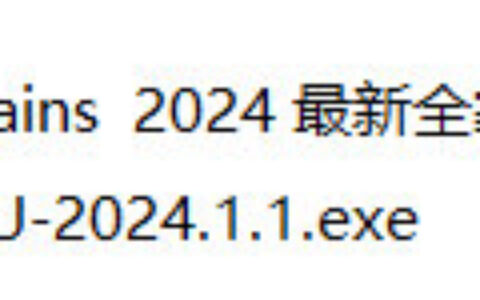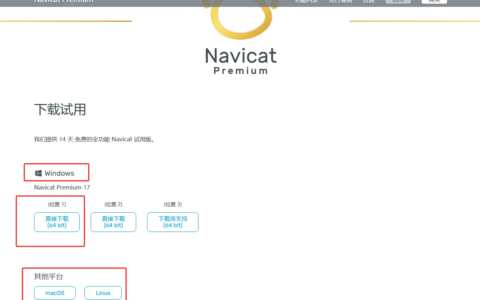机器中的上帝-人工智能,冠状病毒,种族主义和宗教 “ Where is God?” “上帝在哪里?” I have been asking this question more than usual lately. It’s not a loaded question charged with doubt or accusation. It’s advice I give to my twelve-year-old son — “Always look for God.” 我最近问这个问题的次数比平常多。 这不是一个充满疑问或指责的问题。 我给我十二岁的儿子的建议是:“一直在寻找上帝。” Looking for God is an idea I learned from the Jesuits. Íñigo López de Loyola (Ignatius of Loyola), was a Spanish soldier and aristocrat. He discerned his calling after suffering nearly fatal wounds on the battlefield. Íñigo founded the ”Society of Jesus,” in 1540, telling early Jesuits — go into the world and “find God in all things.” This idea is the signature spirituality of the Jesuits. Ignatian spirituality centres itself around the conviction that God is active in our world. That spiritual path is a way of finding God’s presence in our everyday lives and doing something about it. 寻找上帝是我从耶稣会士那里学到的想法。 ÍñigoLópezde Loyola(洛约拉伊格纳修斯)是一位西班牙士兵和贵族。 在战场上受了致命伤后,他辨认出自己的声音。 Íñigo于1540年创立了“耶稣会”,告诉早期的耶稣会士-进入世界,“在万物中找到上帝”。 这个想法是耶稣会士的标志性灵性。 伊格尼亚人的灵性以信念为中心,即神在我们的世界中活跃。 属灵的道路是在我们的日常生活中找到神的同在并有所作为的一种方式。 But it’s not always easy to look for God. Lately, I am distracted and exhausted, in my attempt to live a balanced, contemplative lifestyle in the search for peace considering: 但是,寻找上帝并不总是那么容易。 最近,我为寻求和平而过一种平衡,沉思的生活方式而感到分神和疲惫,考虑到: • The hundreds of thousands of people that have succumbed to Coronavirus in the pandemic •大流行中死于冠状病毒的数十万人 • The global civil unrest and riots due to racism and a lack of fundamental human rights for Black people •由于种族主义和黑人缺乏基本人权而造成的全球内乱和骚乱 • The systems and platforms serving content to us are a fountain of amplified anger, fear, grief and suffering •为我们提供内容的系统和平台是愤怒,恐惧,悲伤和痛苦加剧的源泉 When this is our world, where can we look to find God? 当这是我们的世界时,我们可以在哪里寻找神? Humanity and Artificial Intelligence 人文与人工智能 The concept of Artificial Intelligence has been fueling science fiction since about 1920 when the Czech writer Karel Čapek published “RUR,” his play about a mutiny led by a multitude of robots. Speculation about the behaviour of intelligent machines has made for fertile imaginations ever since. But recently things have taken a more critical turn. Today, Artificial Intelligence (A.I.) is not a fantasy, and the implications of its future are far-reaching. 自1920年左右,捷克作家KarelČapek出版了《 RUR》以来,人工智能的概念一直在推动科幻小说的发展,他的作品是由众多机器人领导的叛变。 从那以后,关于智能机器行为的猜测就引起了丰富的想象。 但是最近情况发生了更关键的转变。 如今,人工智能(AI)并不是一个幻想,它的未来意义深远。 A.I. is pervasive: 人工智能无处不在: • Embedded in personal assistants helping us manage our routines and answering our questions. •嵌入个人助理中,可帮助我们管理例程并回答问题。 • It is powering the code that translates social media posts into natural languages so anyone, regardless of their language preference, can understand and share them. •强大的代码将社交媒体帖子翻译成自然语言,因此任何人,无论其语言偏好如何,都可以理解和共享它们。 • It’s part of the algorithm that allows e-commerce platforms to suggest products and discounts. •它是算法的一部分,该算法允许电子商务平台建议产品和折扣。 • It manages our health care and fitness •管理我们的保健和健身 • It navigates our spacecraft, ocean vessels, trains, buses, trucks and cars. •它可导航我们的航天器,远洋船舶,火车,公共汽车,卡车和汽车。 All that A.I., and more enmeshed in our technology is task-based, or “weak A.I.” It is code written to help human beings do particular tasks, using a machine as an intermediary; it’s intelligent because it can improve our performance, collecting data during its interactions. This often-imperceptible process, known as Machine Learning (ML), is what gives these existing technologies their A.I. moniker. 人工智能以及我们技术中更多的东西都是基于任务的,即“弱人工智能”。它是使用机器作为中介来帮助人类完成特定任务的代码。 它之所以智能,是因为它可以提高我们的性能,并在交互过程中收集数据。 这个通常难以察觉的过程称为机器学习(ML),正是这些过程使这些现有技术具有了AI绰号。 As technologists, politicians, scientists and business people push the limits of A.I., religious groups, philosophers and academics also debate how far A.I. should go — and what should happen as it becomes part of the fabric of our lives. As a result, it raises several spiritual and moral questions about identity, the self, and what it means to be human. These questions impact the way we approach work, family and our faith. It can result in fear of “strong A.I.,” or what A.I. could someday become: human intelligence replicated inside machines. 随着技术人员,政治家,科学家和商人不断突破AI的极限,宗教团体,哲学家和学者们也在辩论AI应该走多远,以及当它成为我们生活的一部分时应该发生什么。 结果,它提出了关于身份,自我以及对人的意义的几个精神和道德问题。 这些问题影响了我们对待工作,家庭和信仰的方式。 这可能会导致人们担心“强大的AI”,或者某天AI可能变成的东西:在机器内部复制的人工智能。 Fear of Thinking Machines 对思维机器的恐惧 Strong A.I. is also known as Artificial General Intelligence (AGI). So far, not yet achieved, but upon its arrival, will require a total rethinking of the qualities we associate with the human experience: consciousness, purpose, intelligence, the soul — in short, personhood. When a machine possesses the ability to think like a human or make its decisions autonomously, should that machine be considered a person? 强大的AI也被称为人工智能(AGI)。 到目前为止,尚未实现,但是一旦实现,就需要彻底重新考虑我们与人类经验相关的品质:意识,目的,智慧,灵魂,总之是人格。 当一台机器具有像人一样思考或自主做出决定的能力时,该机器应被视为人吗? Religious communities may have the most significant stake in the conversation about AGI and personhood. I have encountered people who believe A.I. is threatening to religions. I do not. Many faiths hold convictions about creation and the soul. Some researchers are already engaged in thought experiments to prepare for the future, considering how religions might utilize current technology in the near-term. 在有关AGI和人格的对话中,宗教社区可能是最重要的利益。 我遇到了相信AI威胁宗教的人们。 我不。 许多信仰对创造和灵魂深信不疑。 考虑到宗教在不久的将来如何利用当前的技术,一些研究人员已经在进行思想实验以为未来做准备。 One of the worst possible outcomes for A.I. is that of polarizing two worlds: the technological world and the religious world. There has been a significant lack of meaningful discourse between the two communities. This lack of dialogue has been discouraging and prevents religion from contributing a necessary perspective to technological development. If we do not include belief in the development of new technologies, we miss the opportunity to augment human life and benefit religion. If we somehow diminished personhood by creating artificial intelligence, that’s a bad thing. But, if we can create artificial intelligence that allows people to live life more fully, it could bring people closer to God. 对于AI来说,最糟糕的后果之一是两极分化:技术世界和宗教世界。 两国之间严重缺乏有意义的讨论。 缺乏对话令人沮丧,使宗教无法为技术发展提供必要的观点。 如果我们不相信新技术的发展,那么我们将错过增加人类生活和有益于宗教的机会。 如果我们通过创造人工智能以某种方式降低人格,那将是一件坏事。 但是,如果我们能够创造出使人们更充分地生活的人工智能,那么它就可以使人们与上帝更加亲近。 Atheism, Religion and Faith 无神论,宗教与信仰 Not everyone believes in God. However, being anti-religion is not the same as being an atheist. 并非所有人都相信上帝。 但是,反宗教与无神论者是不同的。 A true atheist believes our existence is a total accident of chance, that life serves no purpose and has no meaning, apart from what we ascribe to our survival. A true atheist believes there is nothing intrinsically good or bad about any human action — from that broad perspective, a murderer and a humanitarian are equals. 一位真正的无神论者认为,我们的存在是偶然的偶然事件,生活没有目的,也没有意义,除了我们赋予我们生存的基础。 一位真正的无神论者认为,任何人类行为在本质上都没有好坏之分,从广泛的角度来看,凶手和人道主义者是平等的。 I don’t believe that, and I don’t think that many people do. To me, faith is just the instinctual sense that our lives continue to matter even after we have died. And the way we choose to live matters. Not merely due to biological programming but because there is genuinely such a thing as right and wrong. 我不相信,我也不认为有很多人这样做。 对我而言,信念只是本能的感觉,即即使我们死后,我们的生活仍将继续重要。 而我们选择生活的方式至关重要。 不仅由于生物程序设计,还因为真正存在对与错。 But faith is not the same as religion. 但是信仰与宗教并不相同。 A.I.: Bringing Us Closer To God AI:使我们更加接近上帝 Religions are systems of beliefs and practices organized to enhance the experience of faith. Sometimes religions help people to uncover more profound levels of meaning in their lives; sometimes, they are just a tool to justify the beliefs and behaviours they would have chosen anyway. Religion can be beautiful in that it provides insight and a framework for making good choices in what can seem like a terrible world. Religion can also be ugly when it gives an excuse for hateful and greedy behaviour. Mostly, like people, religions do a little bit of both. 宗教是为增强信仰体验而组织的信仰和实践体系。 有时,宗教可以帮助人们发现生活中更深刻的意义。 有时,它们只是证明他们原本会选择的信念和行为的工具。 宗教之所以美丽,是因为它提供了洞察力和框架,可以使您在一个看起来可怕的世界中做出正确的选择。 当宗教为仇恨和贪婪的行为提供借口时,它也可能是丑陋的。 通常,宗教与人一样,两者都有。 For Christianity and Judaism in particular, the debate regarding personhood originates with the theological term Imago Dei, Latin for “image of God.” This term implies the relationship between humans’ and their divine creator. In the bible, the book of Genesis reads, “God created mankind in his image.” As theology goes, being created in the divine image affords an individual kind uniqueness to human beings. 特别是对于基督教和犹太教而言,关于人格的争论起源于拉丁文“神的形象”神学术语Imago Dei。 这个术语暗示着人类与其神圣创造者之间的关系。 创世记在圣经中写道:“上帝以他的形象造就了人类。” 按照神学的观点,以神的形象创造给人类提供了一种独特的独特性。 If machines imbued with human-like qualities, or personhood, were created, then logic bears that those machines would also be in the image of God. As goes Imago Dei, this would then challenge the claim that humans are the only beings on Earth with a God-given purpose. 如果创造出充满了类人特质或人格的机器,那么逻辑就会认为那些机器也将像上帝一样。 就像伊玛戈·德伊(Imago Dei)一样,这将挑战以下说法:人类是地球上唯一有上帝赋予目的的生物。 This technological development could also infringe on acts of creation that, according to many religious traditions, should only belong to a god. We are not God. However, we have, potentially, inherently within us, a vocation to create via technology. Human creation, however, is necessarily limited. The vital difference is between a higher power creating out of nothing, and humans creating with what’s available on Earth. 这种技术发展还可能侵犯根据许多宗教传统只应属于神的创造行为。 我们不是上帝。 但是,潜在地,我们内在地拥有通过技术创造的职业。 然而,人类创造必然受到限制。 根本的区别在于,更高的动力是从无到有地创造出来的,而人类是利用地球上可用的东西来创造。 Another concern is creating a machine with strong A.I. that becomes an outlet for worship. It would be idolatrous to utilize strong A.I. as a method to defeat death and redefine the human race. These are challenging, and explosive ideas scientists and futurists don’t like to embrace. Christian doctrine tells us that placing one’s trust in anything other than God, the creator is idolatry. That moves way beyond the realm of mirroring God’s creativity. Fundamentally, a stand-in for God will be created in our image if we find in A.I. that with whom we can share our being and our responsibilities. 另一个令人担忧的问题是,创建一台具有强大AI的机器,成为崇拜的出口。 利用强大的AI作为击败死亡和重新定义人类的方法,这真是偶像崇拜。 这些都是挑战性的,科学家和未来主义者不喜欢采用具有爆炸性的想法。 基督教教义告诉我们,除了神以外,任何人都不可相信创造者是偶像崇拜。 这超出了反映上帝创造力的范围。 从根本上说,如果我们在AI中发现可以与我们分享我们的存在和我们的责任的人,就会在我们的形象中创造上帝的替身。 A.I. and Personhood 人工智能与人格 Today, A.I. is primarily a tool engineered for improving the human experience. It helps us build cars, diagnose illnesses, and make financial decisions. Imagining a world in which our technology slowly becomes more and more intelligent, more and more self-aware isn’t too hard. As weak A.I. evolves into strong A.I., we will objectify the technology and grow accustomed to treating A.I. like anything. 如今,AI主要是为改善人类体验而设计的工具。 它可以帮助我们制造汽车,诊断疾病并做出财务决策。 想象一下一个世界,在这个世界中我们的技术逐渐变得越来越智能,越来越多的自我意识变得不那么困难。 随着弱AI演变为强AI,我们将使技术客观化,并逐渐习惯于将AI视为任何事物。 However, strong A.I., by definition, is human-like in both intelligence and ability. The development of strong A.I. would force humanity to reconsider how to interact with technology. Specifically, what rights, if any, should be afforded machines. For instance, if their intelligence provides machines with a designation beyond that of mere objects and tools. 但是,从定义上讲,强大的AI在智力和能力上都类似于人。 强大的AI的发展将迫使人类重新考虑如何与技术互动。 具体来说,应该赋予机器什么权利(如果有的话)。 例如,如果它们的智能为机器提供的名称不仅限于对象和工具。 How will we respond? Will we be generous granting rights in the absence of clear answers to these questions, or are we going to be parsimonious? Do we risk creating a slave of a sentient, self-aware entity? Or do we do whatever it takes to make sure that never happens — even accidentally? 我们将如何回应? 如果对这些问题没有明确的答案,我们会慷慨地授予权利,还是会变得we丧? 我们是否冒着创建有感知力,自我意识的实体的奴隶的风险? 还是我们要采取一切措施确保这种情况永远不会发生-甚至是偶然发生? This debate has produced significant anxiety in academia, religious circles and the talk show circuit. In the well-known book, “The Singularity is Near,” Raymond Kurzweil introduced the concept of the Singularity to a broad audience. Kurzweil’s book provides examples of choosing the wrong path leading to a massive A.I. failure. 这场辩论在学术界,宗教界和脱口秀巡回演出中引起了极大的焦虑。 在著名的书《奇点即将来临》中,雷蒙德·库兹韦尔(Raymond Kurzweil)向广大读者介绍了奇点的概念。 Kurzweil的书提供了选择错误路径导致大量AI失败的示例。 Conscripting machines to do our bidding, transferring knowledge to them, with their exponential capacity for storage and processing, could result in the devices becoming far more intelligent than humans. Then, one day, the machines may decide to dominate us. 征募机器进行招标,将知识转移给他们,以及它们具有指数级的存储和处理能力,可能会使这些设备变得比人类更加智能。 然后,有一天,机器可能决定统治我们。 Perhaps, Erich Fromm, the Jewish social psychologist, humanistic philosopher, sociologist and psychoanalyst who fled the Nazi regime framed it best when he wrote in his book “The Sane Society,” published in 1955 that “The danger of the past was that men became slaves. The danger of the future is that men may become robots.” 也许逃离纳粹政权的犹太人社会心理学家,人文哲学家,社会学家和心理分析家埃里希·弗洛姆(Erich Fromm)在1955年出版的《萨内社会》一书中写道,“过去的危险是男人变得奴隶。 未来的危险是人可能会成为机器人。” A.I., Black Lives Matter and Religion 人工智能,黑人生活至关重要和宗教 There are ethical questions beyond speculation that need answering now. A.I. systems are being used today by police and the military to determine who to investigate. Today military and police operations are predicated on machine-driven recommendations of those identified as potential future domestic abusers or sexual predators. A.I. is used to decide who is not going to get financial credit, like a mortgage, or insurance, based upon their anticipated future solvency. Algorithmic bias is being brought into question frequently in the media coverage of the Black Lives Matter movement. Religious communities have a responsibility to participate in conversations regarding these dilemmas. 除了推测之外,还有一些道德问题需要立即回答。 如今,警察和军方正在使用AI系统来确定要调查的人。 如今,军事和警察行动基于机器驱动的建议,这些建议被确定为潜在的未来家庭虐待者或性掠夺者。 AI用于根据预期的未来偿付能力来决定谁不愿获得金融信贷,例如抵押贷款或保险。 在“ Black Lives Matter”运动的媒体报道中,算法偏差经常引起质疑。 宗教社区有责任参加有关这些困境的对话。 Religions should involve themselves in the application of the A.I. that exists today. For example, Facebook’s content recommendation algorithms are a form of weak A.I. The A.I. is used to help make posts go viral. When some highly emotional, heartbreaking story starts trending, it directly influences the movement and volume of both prayers and charitable activity. These attention algorithms are a clear example of how prayer and charity are being shaped and having a direct impact on the theological priorities of a community. Algorithms like those that are used by Facebook, also dictate the political news — fake or not — that millions see. It is therefore imperative that religious groups, take an active and vocal interest in the ethical implications of the development of artificial intelligence. 宗教应该参与当今存在的人工智能的应用。 例如,Facebook的内容推荐算法是弱AI的一种形式。AI用于帮助使帖子变得病毒式传播。 当一些激动人心,令人心碎的故事开始流行时,它将直接影响祈祷和慈善活动的动作和数量。 这些注意力算法是一个清晰的例子,说明祷告和慈善活动是如何形成的,并直接影响社区的神学优先事项。 像Facebook所使用的算法一样,算法也决定着数以百万计的政治新闻(无论是否伪造)。 因此,当务之急是,宗教团体必须对人工智能发展的伦理含义产生积极和口头的兴趣。 The connections between religious thinkers and A.I. developers should be made more robust. We make these systems — not the machines. When this becomes the work of computers, how are we going to teach methods for what is right and what is wrong? We have a humanitarian obligation to impact the morality of machines in advance of the development of strong artificial intelligence. Intervening now can prevent the cataclysmic robot-dictatorships that abound in science fiction video games, movies and books. Inherent in A.I. is the capacity to build on itself, embedding ethical principles into the code today is the critical pathway to evolving moral machines tomorrow. 宗教思想家与AI开发人员之间的联系应更加牢固。 我们制造这些系统,而不是机器。 当这成为计算机的工作时,我们将如何教授正确和错误的方法? 在发展强大的人工智能之前,我们负有人道主义义务,要影响机器的道德。 现在进行干预可以防止科幻小说中出现的大灾难性机器人专政,如视频游戏,电影和书籍。 AI的固有能力是建立在自身之上的能力,将道德原则嵌入当今的代码中是明天发展道德机器的关键途径。 A.I. as Religion AI作为宗教 Could A.I. replace religion on the whole? I am optimistic in asking this question. Machines capable of strong artificial intelligence will rattle our fundamental understanding of the role of religion. I do not find this rocking of our essential knowledge of religion problematic — that is precisely the point of faith. Strong A.I. will have a massive impact on both the institution of faith and the way religions understand themselves. This impact will be akin to that of the printing press, and the Internet had on religious scholarship. A.I. will, I speculate, bring about a significant change in the way people think about the nature of God. 人工智能能否整体取代宗教信仰? 我很乐意问这个问题。 具备强大人工智能能力的机器会使我们对宗教角色的基本理解陷入混乱。 我认为,我们对宗教基本知识的摇摆不成问题,而这恰恰是信仰的重点。 强大的人工智能将对信仰制度和宗教了解自己的方式产生巨大影响。 这种影响将类似于印刷业,而互联网对宗教学术产生了影响。 我推测,人工智能将使人们思考上帝的本质的方式发生重大变化。 An omniscient, omnipotent, and omnipresent machine creates parallels to, and tensions with, monotheistic religions. In the Christian tradition, those are qualities that ascribed to God. The adjectives, “omniscient, omnipotent, and omnipresent,” define superintelligent A.I. 无所不知,无所不能和无所不在的机器创造了与一神教宗教的相似之处和张力。 在基督教传统中,这些是归因于上帝的特质。 形容词“无所不知,全能和无所不在”定义了超智能AI With this type of A.I., we have something that can be everywhere, can know everything, and solve problems and understand them in ways that humans have never been able to do. Alternatively, machines imbued with strong artificial intelligence might become objects of worship: Religious movements worshipping A.I. 使用这种类型的AI,我们可以拥有无处不在的事物,无所不知,解决问题并以人类从未有过的方式理解问题。 另外,充满强大人工智能的机器可能会成为崇拜的对象:崇拜AI的宗教运动 If a machine cures fatal diseases, knows how to improve education, and brings order to society, would humans idolize it? Likely. Then machines might develop their sects or entirely new religions. A robot might come to feel that religion “doesn’t compute.” Or, programmed to prioritize ethical concerns, might have a very different perspective and become a fervent spiritualist. I prognosticate with certainty that there will be denominations that the A.I. develops. I hesitate to speculate on the variables and kinds of faiths that may arise from A.I. save to say they will in all likelihood be different than anything that’s come before them. 如果一台机器可以治愈致命疾病,知道如何改善教育水平并为社会带来秩序,人类会崇拜它吗? 可能吧 然后,机器可能会发展其宗派或全新的宗教。 机器人可能会感觉到宗教“没有计算能力”。 或者,通过编程来优先考虑道德问题,可能会有截然不同的观点并成为热心的唯心论者。 我可以肯定地预测AI会发展各种面额。 我犹豫要推测人工智能可能产生的变量和种类,只是要说它们极有可能与之前的事物有所不同。 As a thought experiment, imagine the possibility that some branches of religion may attempt to convert machines with strong A.I. to follow their God. And, some religious scientists, developing the new technology, may choose to go beyond imbuing it with general rules of ethics, coding it to work within a clearly defined set of fundamentalist and restrictive religious principles. 作为一个思想实验,想象一下某些宗教分支可能试图转换具有强大AI的机器来跟随他们的上帝的可能性。 而且,一些宗教科学家在开发新技术时,可能会选择超越将其纳入一般道德规范的范围,将其编码为在一组明确定义的原教旨主义和限制性宗教原则下工作。 Fear will be the overwhelming reaction to the development of a machine with strong A.I. If a religious community is incredibly suspicious of existing or past technologies and their implications, then technology like A.I. would be incredibly disturbing — another instance of humanity attempting to usurp God’s position in the world not unlike the Tower of Babbel. Christian churches, in particular, have classically been slow to adapt to new technologies, in the recent past, holding vigorous debates regarding televising sermons and using the Internet. 对于具有强大AI的机器的发展,恐惧将是压倒性的React。如果一个宗教团体对现有或过去的技术及其含义产生令人难以置信的怀疑,那么像AI这样的技术将令人难以置信-这是人类试图篡夺上帝在其中的地位的又一实例。世界与巴别塔不同。 尤其是基督教教会,在传统上,适应新技术的步伐很慢,最近,就讲道和使用互联网进行了激烈的辩论。 The Machine is a Mirror 机器是一面镜子 Resistance should give religious communities pause. Why do we assume A.I. will be so different from us? My experience with technology is that it heightens who we are. My experience with religion similar. 抵抗应该使宗教团体停顿下来。 为什么我们认为人工智能会和我们有很大的不同? 我在技术方面的经验是,它提高了我们的身份。 我与宗教的经历相似。 Religion is a system of concepts and practices that helps people discover and experience God. Religions that work don’t work for everyone. Religions are not necessarily the best way for everyone to experience God. I believe, though, that they can help most people. Also, I think the same is true for A.I. 宗教是一个概念和实践体系,可以帮助人们发现和体验上帝。 有效的宗教并不适合所有人。 宗教不一定是每个人体验上帝的最佳方式。 不过,我相信他们可以为大多数人提供帮助。 另外,我认为AI也是如此 Right now, communities should prepare for the eventual creation of a machine with strong A.I. by thinking about how the technology reflects their values. How can we employ technology to advance the principles of God? By imbuing the technology with values that stem from emulating God. 现在,社区应该考虑技术如何体现其价值,为最终创建具有强大AI的机器做好准备。 我们如何运用技术来推进上帝的原则? 通过为技术注入源于模仿上帝的价值观。 Here is the advice I give my son when he asks me if “in the future, will the robots kill us all?” Sophisticated technologies are not made overnight. There wasn’t a meeting at Boeing one day over lunch where they walked out of the room with a 747. A.I. is the same. It takes time to develop the complexity and refine it. And it’s our responsibility, all of us, to shape A.I.’s outcome. Technology is an amplifier of human endeavour. We get out of it what we put into it at scale. Let us learn by the devastating polarization we are witnessing, and the millions of lives painfully impacted by either not taking enough action, or worse, doing nothing to change the narrative. We have an opportunity and responsibility to ensure a positive outcome for our collective future with A.I. 当儿子问我“将来,机器人会杀死我们所有人吗?”时,这是我给儿子的建议。 尖端技术并非一overnight而就。 波音公司有一天没有午餐会议,他们带着一架747走出房间。人工智能是一样的。 开发复杂性并对其进行完善需要时间。 塑造AI的成果是我们所有人的责任。 技术是人类努力的放大。 我们从中得到了大规模投入。 让我们从目睹的毁灭性两极分化中学习,以及数以百万计的生命因不采取足够的行动或更糟的是无能为力地改变叙述而痛苦地受到影响。 我们有机会和责任确保AI共同的未来取得积极成果 A.I. will change rapidly, but religious and scientific communities have tools to explore both the ethical and moral limits. Key to this is working on ourselves, to shape the technology we have right now. 人工智能将Swift变化,但是宗教和科学界具有探索伦理和道德极限的工具。 关键是要靠自己努力,塑造我们现在拥有的技术。
2024最新激活全家桶教程,稳定运行到2099年,请移步至置顶文章:https://sigusoft.com/99576.html
版权声明:本文内容由互联网用户自发贡献,该文观点仅代表作者本人。本站仅提供信息存储空间服务,不拥有所有权,不承担相关法律责任。如发现本站有涉嫌侵权/违法违规的内容, 请联系我们举报,一经查实,本站将立刻删除。 文章由激活谷谷主-小谷整理,转载请注明出处:https://sigusoft.com/88316.html












